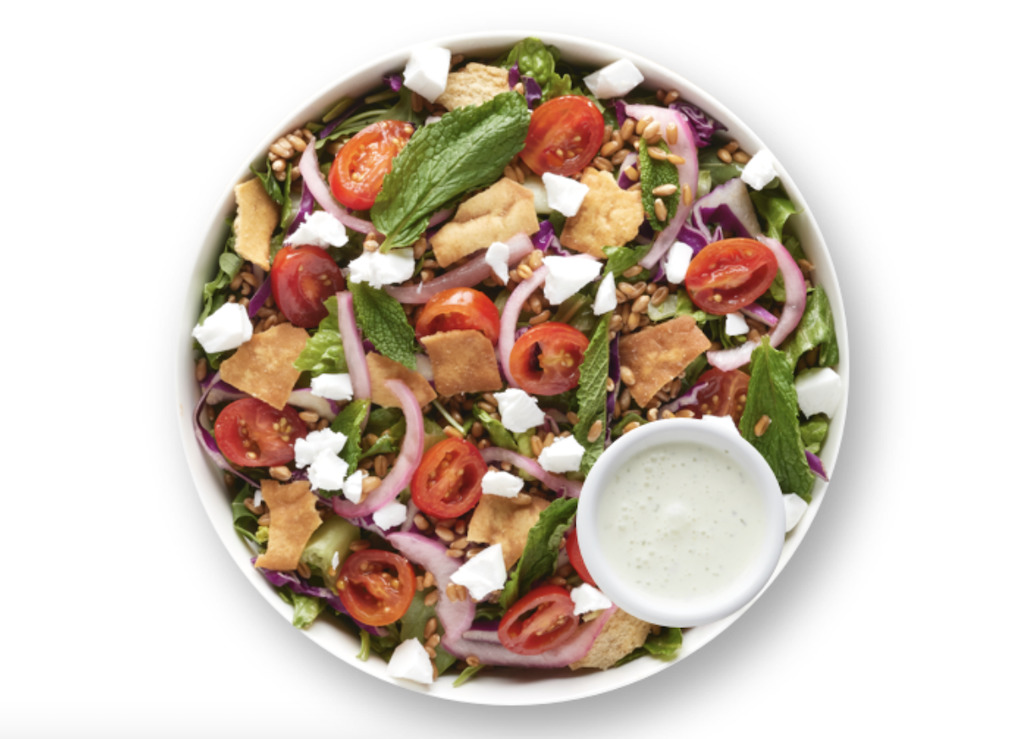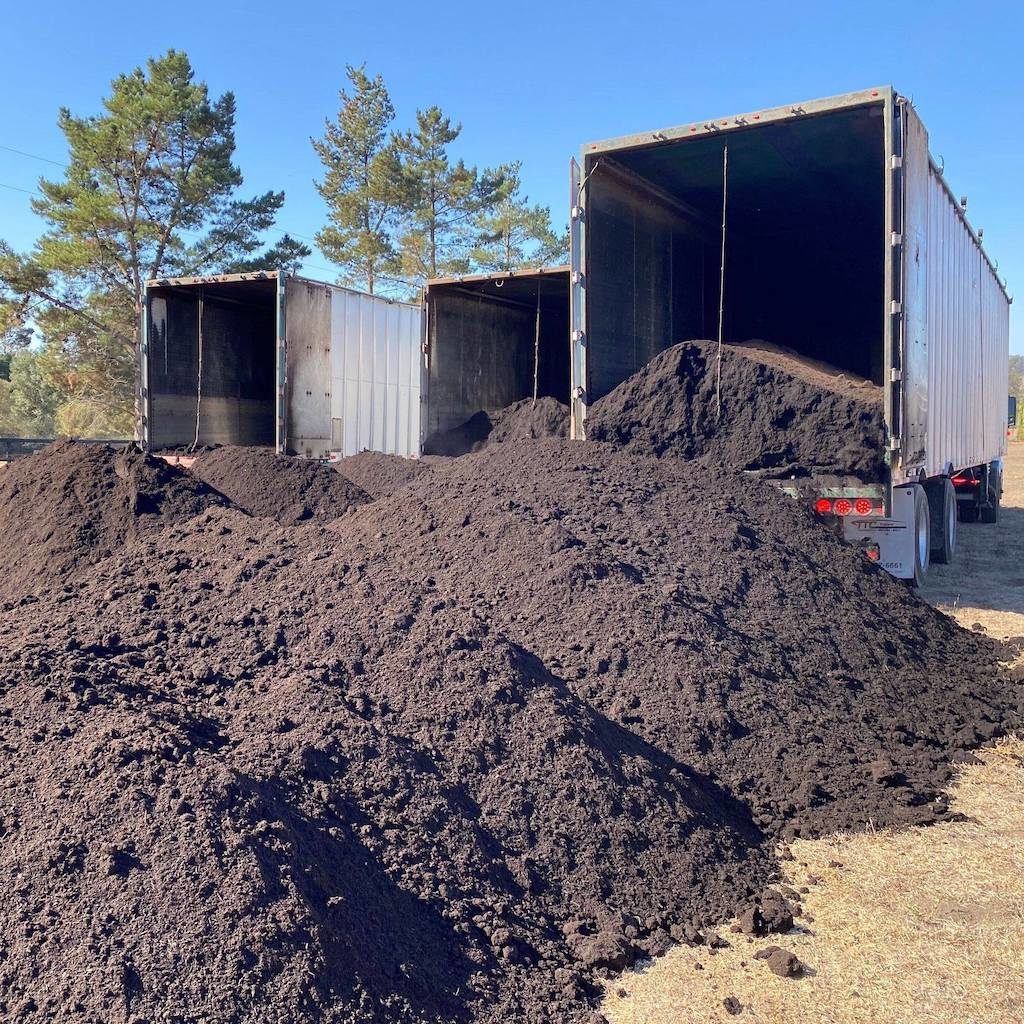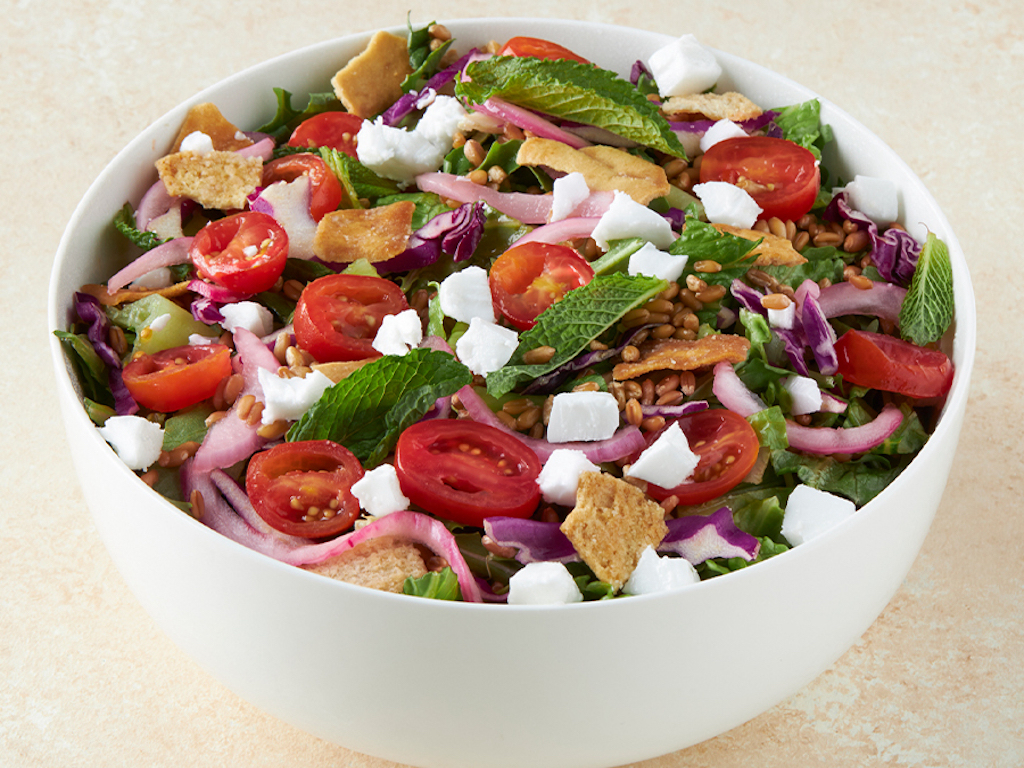3 Mins Read
American fast-casual chain Just Salad has just launched a new menu item: the Zero Foodprint Salad. Teaming up with Zero Foodprint (ZFP), a portion of sales from each order of the new dish will go towards regenerative farming projects. With chef-activist Anthony Myint at the helm, ZFP provides “restore grants” to farmers and ranchers across the American Northeast.
Just Salad has just teamed up with ZFP, the nonprofit co-founded by Myint, to help support regenerative farming in the U.S. Called the Zero Foodprint Salad, 15% of sales will be donated to the nonprofit to help farmers switch to regenerative farming practices. With ZFP’s grants, these farmers can now begin to restore soil health and boost carbon sequestration.
Zero Foodprint Salad
The Zero Foodprint Salad contains a base of red cabbage, arugula, and romaine lettuce and is topped with fresh mint, wheat berries, pickled red onions, grape tomatoes, and pita chips. It’ll also contain a vegan feta alternative instead of the conventional carbon-intensive dairy-based version, which is supplied by Violife.

The yoghurt cucumber dressing does contain dairy, but Just Salad says it’s sourced from Stonyfield Organic — it collaborates with ZFP.
All of Just Salad’s 47 locations will be serving the new dish from this July to September. It’ll also be available to diners via the restaurant’s app and online delivery page.
ZFP’s Restore Grants
ZFP first started in 2015 as part of Anthony Myint’s mission to promote restaurant sustainability. Last year, the organisation began launching “restore grants” to farmers in California to help them begin regenerative agriculture projects. Some of these activities include reducing tillage, applying compost, and planting cover crops.
ZFP’s restore grants represent real-world climate action.
Anthony Myint, Co-Founder, ZFP
ZFP has also launched restaurant sustainability initiatives in Asia through its regional arm Zero Foodprint Asia, which kickstarted in June this year.
So far, the nonprofit has helped 30 farms in the state covering 3,787 acres of land. By switching to regenerative farming practices, these projects have helped sequester around 15,865 metric tons of greenhouse gas emissions.
“ZFP’s restore grants represent real-world climate action,” said Myint. “Converting greenhouse gases to soil carbon, boosting climate resilience, and addressing food system inequities that have been exacerbated by the climate crisis.”

Expanding regenerative farming to U.S. northeast
Now, by partnering with Just Salad, ZFP plans to expand and reach farmers in the northeast of the country.
This is only a first step — we seek to source more ingredients from regenerative farms as these practices scale up.
Sandra Noonan, Chief Sustainability Officer, Just Salad
“After learning about the regenerative farming projects that Zero Foodprint has already funded, we knew we wanted to support ZFP’s expansion,” shared Sandra Noonan, Just Salad’s chief sustainability officer. “So we created the Zero Foodprint Salad to generate funds for ZFP’s grant program.”
“We first approached Just Salad about a partnership because of their innovative work on carbon labelling,” Myint added. “We’re happy they are putting their brand behind the cause of regenerative agriculture.”
Last year, Just Salad became the first restaurant chain in the U.S. to carbon label its entire menu. It has since launched a new meal kit brand called Housemade, which has multiple plant-based options, comes in plastic-free packaging and is delivered via bikes.
Noonan says that its latest collaboration with ZFP is only the start of its regenerative farming journey. “This is only a first step — we seek to source more ingredients from regenerative farms as these practices scale up.”
Lead image courtesy of Just Salad.



